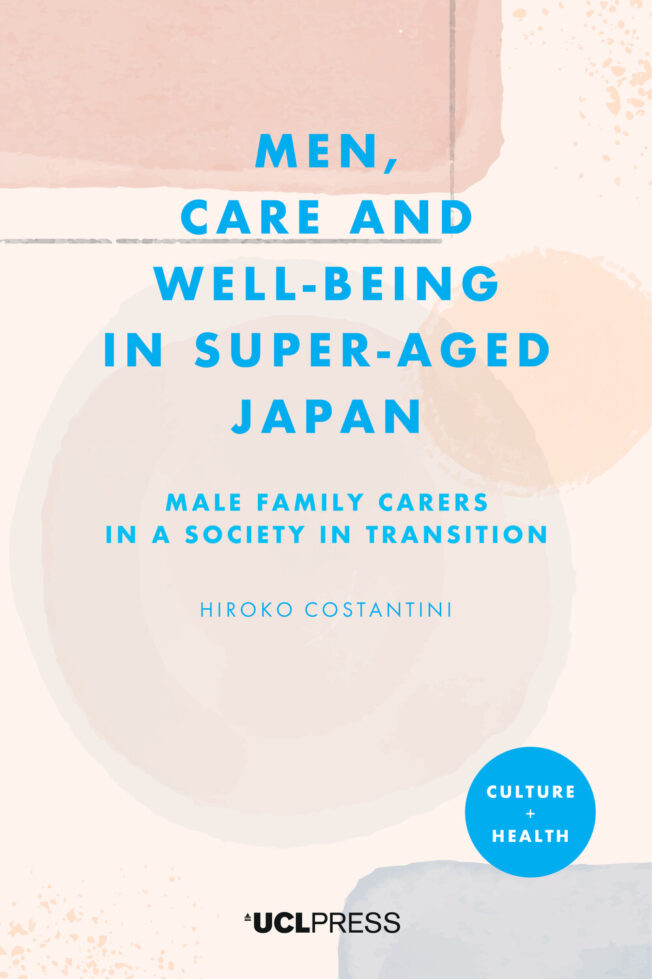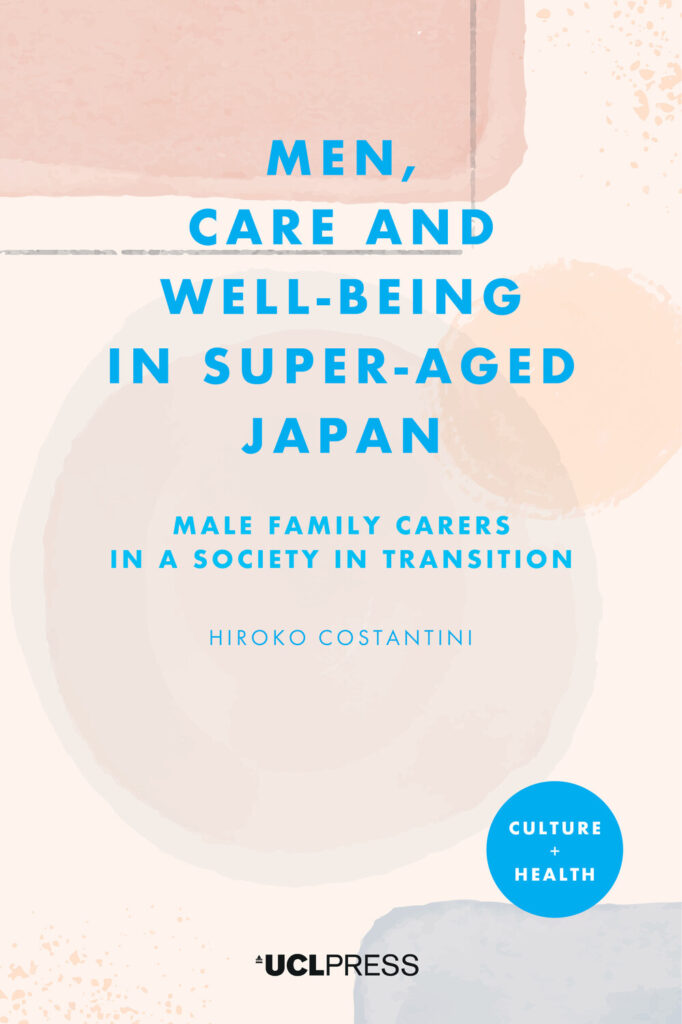
Men, Care and Well-being in Super-aged Japan
Male family carers in a society in transition
Hiroko Costantini (Author)
Series: Culture and Health
Men, Care and Well-being in Super-aged Japan offers an innovative perspective on men’s well-being through their involvement in caring for older family members. Focusing on super-aged Japanese society, the book provides a valuable way to understand key social challenges relevant to countries on the cusp of ageing society. In contrast to the predominant focus on men in the workplace, this study shifts attention to men in the family – such as men as sons, sons-in-law, husbands and grandsons – whose roles in care remain understudied.
The first part explores men’s care relations in the context of their extended family relations, including the emergence of sons-in-law in care, part of the broader shift away from the historical family system. The second part widens perspective to include the domain of work and related policies to understand how men reconcile care and work. The third part situates men’s caregiving in the broader societal context, including attention to the novel notion of ‘care literacy’. Each part is designed to give specialists across relevant fields – such as well-being, masculinity, gender relations and care systems – greater flexibility in accessing relevant sections of information. The structure also supports use as teaching material in undergraduate and graduate courses.
List of figures
Preface
Acknowledgements
Part I: Introduction
1 Motivation and theoretical approach
2 Methodology
Conclusion to Part I: structure of the book
Part II: Family relations, care practices and well-being
3 Caring for my parents-in-law? ‘Additional help’ and the emergence of sons-in-law in care for older relatives
4 Nurturing family relations to enable care and well-being in family
5 Young carers for beloved grandparents: silent detriment of well-being?
Conclusion to Part II
Part III: Care and work
6 Employment and family care: aiming towards compatibility
7 Care and work reconciled?
Conclusion to Part III
Part IV: Re-constructing care, re-defining well-being
8 The government’s attempts to re-create men’s care roles in the family and community
9 Alleviating care stress: ‘Care literacy’ as an enabler of a culture of care in the community
Conclusion to Part IV
10 Conclusion
Index
DOI: 10.14324/111.9781806550708
Number of illustrations: 2
Publication date: 21 May 2026
PDF ISBN: 9781806550708
EPUB ISBN: 9781806550715
Hardback ISBN: 9781806550685
Paperback ISBN: 9781806550692
Hiroko Costantini (Author) 
Hiroko Costantini is Associate Professor at the Graduate School of Agricultural and Life Sciences, the University of Tokyo. She earned her PhD from the University of Cambridge. Her expertise spans social anthropology and Japanese Studies, with research areas encompassing social sustainability, population ageing, gender and well-being.
Unmaking to Make
Alex Ungprateeb Flynn, María Iñigo Clavo, Beatriz Lemos, Florencia Portocarrero,
23 April 2026
The Chronopolitics of Life
Nolwenn Bühler, Nils Graber, Victoria Boydell, Cinzia Greco,
04 December 2025
The Hand that Feeds
Alexander Mullan, Riley Smallman, Herre de Bondt, Juliette Waterman,
13 May 2025
An Anthropological Approach to mHealth
Charlotte Hawkins, Patrick Awondo, Daniel Miller,
28 October 2024
Men, Care and Well-being in Super-aged Japan
Male family carers in a society in transition
Men, Care and Well-being in Super-aged Japan offers an innovative perspective on men’s well-being through their involvement in caring for older family members. Focusing on super-aged Japanese society, the book provides a valuable way to understand key social challenges relevant to countries on the cusp of ageing society. In contrast to the predominant focus on men in the workplace, this study shifts attention to men in the family – such as men as sons, sons-in-law, husbands and grandsons – whose roles in care remain understudied.
The first part explores men’s care relations in the context of their extended family relations, including the emergence of sons-in-law in care, part of the broader shift away from the historical family system. The second part widens perspective to include the domain of work and related policies to understand how men reconcile care and work. The third part situates men’s caregiving in the broader societal context, including attention to the novel notion of ‘care literacy’. Each part is designed to give specialists across relevant fields – such as well-being, masculinity, gender relations and care systems – greater flexibility in accessing relevant sections of information. The structure also supports use as teaching material in undergraduate and graduate courses.

